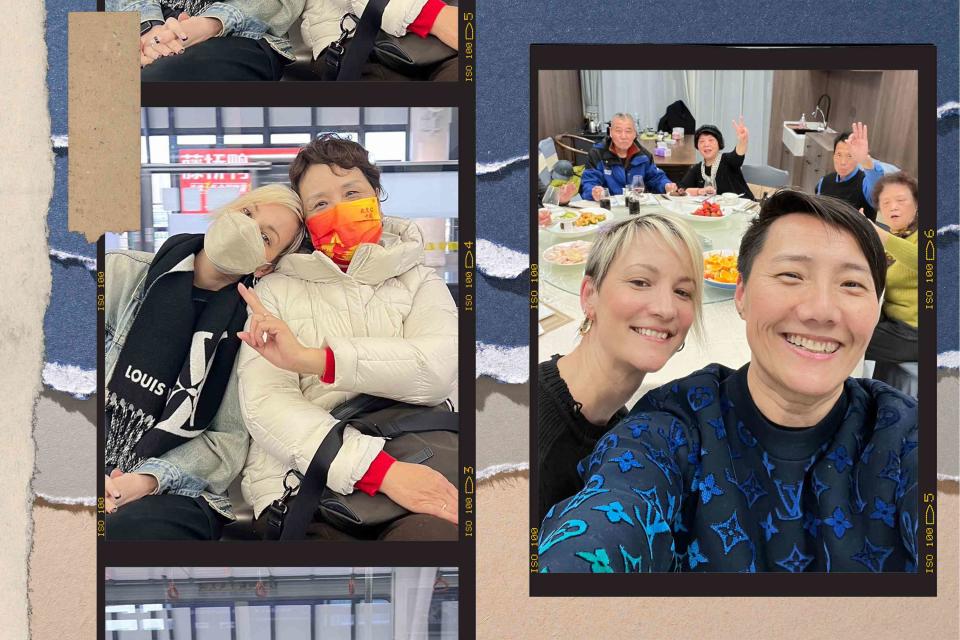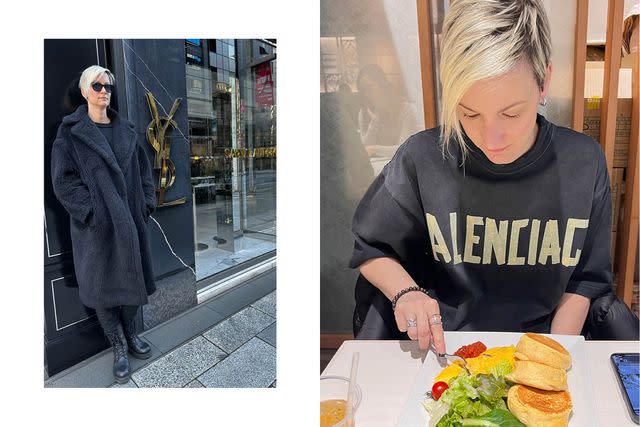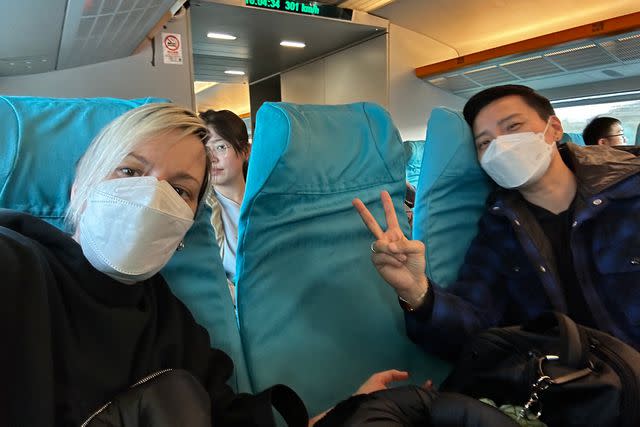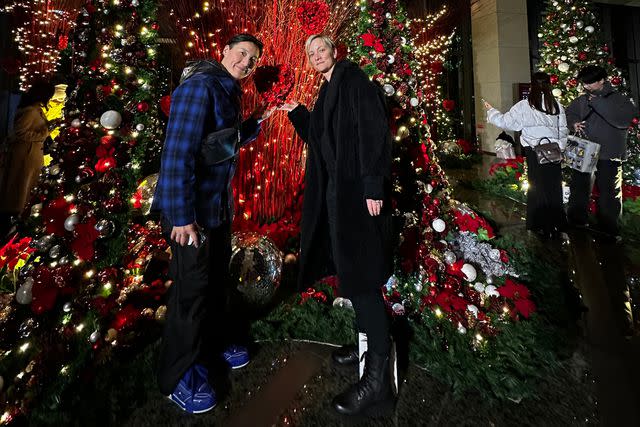How I Travel With a Hearing Disability — and What I've Learned Along the Way
Disability advocate KR Liu shares what it's like to travel with hearing loss.

Courtesy of KR Liu
For Travel + Leisure’s column Traveling As, we’re talking to travelers about what it’s like to explore the world through their unique perspectives, We chatted with disability advocate KR Liu, now the head of brand accessibility at Google, about her experiences traveling with lifelong hearing loss. Here’s her story…
I was born three months premature in 1978, when the chances of preemies surviving was very rare. When I learned to talk, my sister would say words and I would repeat them wrong, so they thought something was not right. Back then, they didn’t test babies for hearing loss, so I wasn’t diagnosed until I was 2.5 years old. I was fitted for hearing aids at three.
I’ve pretty much been severely hard of hearing my entire life. Sign language was not taught when I was in school. I don’t sign; instead, I was taught to lip read. I wear hearing aids, which help get me to about 80 percent, but for the most part, I lip read.
The hearing aids I had when I was younger were much more visible, so it was obvious I had a disability. People would come up and talk to me differently.

Courtesy of KR Liu
As a kid, we went on a cruise to Alaska. For me, it was like being trapped in a box — it was so loud on board. When we left port, it was snowing and raining. Hearing aids are not waterproof, so I had to take them out. They’re not covered by insurance, either, and I didn’t want my parents to have to pay for another expensive pair. I can’t think of one moment when I really enjoyed the scenery because I couldn’t talk to anyone. (Now, I live in Seattle, where it rains all the time. Hearing aids still aren’t waterproof, so it’s a problem.)
A trip I remember well is Disneyland, one of the most accessible and accommodating theme parks. They really have thought of everyone visiting and how to make things inclusive.
These days, I love being in Tokyo. Lip reading is cognitively exhausting — it uses a lot of mental and physical energy. But in Tokyo, there is no talking on the subway; you have to be quiet. I can simply relax and get ready for the next five hours of shopping I want to do. Those types of cultural guidelines give people some peace and quiet, and energy to rebuild.

Courtesy of KR Liu
During the pandemic, a mask was my worst nightmare. Recently, my wife and I were on vacation in Tokyo and we had to make an emergency trip to China to see her family. Everyone is still wearing a mask there since COVID continues to be rampant. Even though I don't speak the language, the fact that I couldn't see their faces made things difficult. That’s how I read emotion, especially in other cultures. Chinese culture is very expressive, so when I can’t see their faces, it’s hard for me to do what I do best: read body language and emotion — that’s my superpower.
Google Translate is my number one way of communicating in a foreign country. Tools like this and captioning are critical for people like me to be able to enjoy travel. I can’t tell you how many times I've been in an airport, trying to hear a gate change. It has opened up travel, but it still needs to be built into infrastructure more, which is part of the reason I came to work at Google. We’re seeing more advocacy around things like accessibility in air travel — in 2022, I was even appointed by President Biden to the U.S. Access Board to help improve accessibility.
For example, hotel rooms are a big challenge — if there’s something wrong, I can’t call room service because I can’t talk on the phone. It’s great that some rooms have phones that flash when they ring, but I still can’t communicate. Video conferencing exists, but it comes down to the infrastructure not being there.
Hearing loss is a hidden disability. In many cultures, disabilities, especially hearing loss, aren't accepted. They're looked down upon and seen as a weakness. There’s a societal movement that needs to evolve to include disabled people. The more we're out there and connecting with different communities around the world, we can show even small things that can be done to make it that much more accessible.
Related: I'm a Double Amputee Paralympian With Prosthetic Legs — Here's What It's Like to Travel the World

Courtesy of KR Liu
But my disability is just one part of me — I am a queer woman, too. My wife, Abi Liu, is Chinese. She was a swimmer for China and is now a swim coach for Team USA. When we go back to China, we can't put on our visa that we're married or hold hands in public. But she’s very much my lifeline from a communication standpoint.
It's hard being an interracial disabled couple. I'm open about who I am and all the parts of my identity. But we have to research a place before traveling, especially internationally. There are two things we always have to weigh — is it safe and is it accessible? That's double stress, but it doesn't stop us. We find ways to make it work.
[Abi] is from a city in southern China called Wenzhou, which is very welcoming. We were there recently and many kids had never seen a tall white person — I’m almost six feet tall with blonde hair. People wanted to take pictures with me and touch my hair. It was cool — and Abi was super proud. That was heartwarming.
Travel has opened my eyes and made me pay more attention to the disability culture. For instance, Wenzhou has its own rare dialect — if you speak Mandarin, you cannot understand it. We were enjoying street food one night — my wife was showing me her hometown dumpling place that’s become an influencer hot spot — when I noticed there were people signing. I know just a little, so I tried signing in American Sign Language (ASL). But my wife said, "I think they’re singing in Wenzhounese." I had never thought of them having their own dialect. That was their way of creating language for the deaf community within their province. It was such a learning experience for me.
It makes sense they found some way to communicate. There are different disabilities everywhere, and communication is the thing that holds us all together.
For more Travel & Leisure news, make sure to sign up for our newsletter!
Read the original article on Travel & Leisure.

